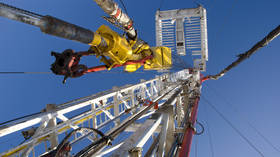US says Russia oil price cap won’t harm OPEC – Reuters
Moscow has warned it will cease oil sales to nations that go along with the price cap scheme
Plans to impose maximum price caps on Russian oil sales will not affect other major producers, US officials reportedly told the Organization of the Petroleum Exporting Countries (OPEC), insisting the measure will target Moscow alone.
Washington reached out to OPEC representatives in recent days to assuage concerns about the impending price caps and “reassure them of [the] limits to its plans,” a US Treasury Department official told Reuters on Wednesday.
“The price cap due for Dec. 5 was designed specifically to address Russia’s invasion of Ukraine and will not be carried over to other producers,” the official said.
While Group of Seven (G7) nations agreed to the cap in September, the European Union only signed onto the plan earlier this month, leaving the bloc just six weeks to resolve outstanding regulatory issues. In addition to several waves of US penalties, the EU has heavily sanctioned the Russian energy sector, imposing an outright ban on crude imports set to take effect in December alongside the Western price cap.
Moscow has said it will not go along with any maximum price scheme, with Deputy Prime Minister Aleksandr Novak declaring “we will not supply oil to countries that will use the price ceiling,” and that the plan will set “a bad precedent that could at any moment be extended to other suppliers, to all global trade.”
“They can say whatever they want. The price should be formed by the market method based on the balance of supply and demand,” Novak said last week, after US Treasury Secretary Janet Yellen suggested capping sales at $60 per barrel.
The reported US outreach to OPEC comes days after OPEC+ – a broader org encompassing Russia and other larger exporters – announced it would slash oil production by 2 million barrels per day, despite facing pressure from Washington to hold off on the move. US officials roundly condemned the production cut, suggesting it was designed to benefit Moscow as Europeans seek alternative energy sources in retaliation for the war in Ukraine. OPEC’s leading member, Saudi Arabia, later denied the allegations, saying it was “astonished” by the idea that it is “standing with Russia.”
You can share this story on social media:








Comments are closed.